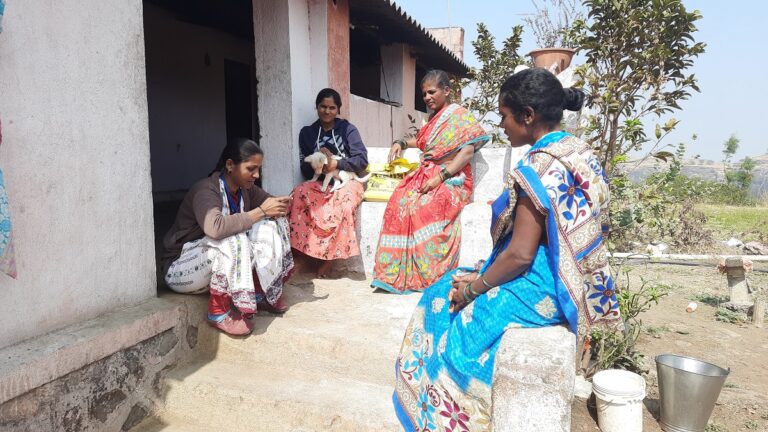What is your land holding size? How much land do you own? We used to ask farmers during our survey and the reply used to get us “3 acres”, “I own 5 acres” and “One acre”.
Then we used to ask about the total cultivable land out of the land size they told us and most of them replied “All the land is cultivable.”
After choosing the option we used to move to the next question and the feeling of asking that question is like you are asking your parents about the first Goa trip permission and you already know that they will get angry and you will get a negative reply in return immediately.
What is your average annual income from farming? How much do you earn every year from agriculture?
You will think that how it is relevant to that situation but as a researcher, we know how quickly we get a response that is negative or replied in anger, and as per my experience never ask these questions to these persons
- Never ask men about their salary
- Never ask women about their age
- Never ask government employees about the opportunities they have to earn that ‘Do Number ka Paisa’
- Never ask the politician about the promises he/she made before the election
- And finally never ask a farmer about his annual income from farming.
All these respondents get uncomfortable, get irritated quickly, and become insecure if we ask respected questions to each of them.
But as a socio-economic study researcher, you don’t have an option of asking the farmers about their income, and some respondents used to take a pause and look at us suspiciously as they used to think that these researchers belong to any government organization. Then some used to get irritated and used to respond very angrily. Some used to say “Less than 30,000. Then we used to get shocked and used to think that why these farmers are lying to us although they own average land size.
Every time on the field when we ask the question to farmers, we never get direct answers but a lot of negative vibes.
It was the month of February when I and my team were doing an impact assessment study of the Crompton CSR Foundation Water Conservation Project at Wasunde village. On our second assessment day, we saw one family doing labor work in the farmland around 12pm.
We stopped there and waved at them, the head of the household came towards us. We told them why are we here and started having a conversation with him about his farming. Then his family members who were doing labor work on their own farm also joined the conversation. We started talking about their cropping pattern in detail. Then we started discussing the expenses and market price they get for the onion. After having a 10 to 15 minutes conversation I predicted that they might be earning 2 lakhs annually and during our discussion, I just mentioned that. Their instant reaction was a huge sarcastic smile. Initially, I didn’t understand and thought negatively.
The female head of that family observed my unconsciousness and then politely replied, “ Everyone decides farmer’s financial status by their land holding size and which crops they cultivate. But no one thinks that what challenges we faced in farming. Definitely, because of the water conservation structure, the situation is better than earlier and it’s helping us. But there are other external factors also which are affecting farming severely and if it goes on then this water conservation won’t help in the long term. Because there are stone crushing activities carried out in our village as there is road development work which is going on and that dust of the stone crushing is damaging our crops hence although we have enough water available another problem has been started. We can’t complain about it as one of our family members is working there and that stone crusher activity provided employment to many youngsters in our village. So they are earning from it but our farms, soil, and crops are getting damaged by the activity. So How can we earn more in spite of investing so much? It is also affecting the dairy business in the village as this small dust is mistakenly mixed with fodder and livestock getting ill.”
And at that time the famous quote “ Don’t Judge a book by its cover” came to my mind as me and my team was constantly judging the respondent farmer’s financial status on the basis of cultivable land they have and were thinking that if the water crisis problem has been solved by one of our prestigious client’s water conservation project then their income should have increased and if it not then they must be lying to ourselves.
But never thought about how climate change and other human anthropogenic activities are affecting agricultural development.
I realized my mistake, mistake that how easily I think that government provides so many benefits to the farmer yet why do they commit suicide? Why do they do strikes? A mistake that if there is untimely rain received in my region then how I quickly upload an Instagram reel over it without thinking about the how farms in my region could have been affected by this sudden rain. Quickly remembered the movie scene of the Academy Award-winning film Parasite where the 2 families have different perspectives about the sudden rain as the rich one enjoys about it and the poor one suffered.
Another mistake that how quickly I throw extra food in the garbage if I don’t like the dish at the wedding ceremony or at any function without thinking that what efforts farmers take to cultivate the crop.
That doesn’t mean I should not enjoy rain or food but raised the question of that can I become responsible by taking small steps towards it which will help in many ways or I am going to ignore it by thinking it’s not related to me?




